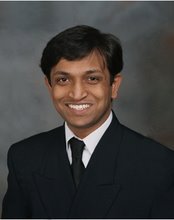Recently, I happened to see a report US President's Council of Advisors in Science and Technology (PCAST) on the Networking and Information Technologies http://www.whitehouse.gov/sites/default/files/microsites/ostp/pcast-nitrd-report-2010.pdf
This report has a lot recommendations from an esteemed group of advisors for President on how US should move forward on the information and communication technology front. Obviously, there are many interesting bits in the report and most of the recommendations would be useful for India and other countries too. But what really interested me most was a sidebar box on page 71 titled, "Progress in Algorithms Beats Moore's Law". This box says that the increase in the computational efficiency due to improvements in the hardware is many time less than the improvements due to more efficient algorithms.
Basically, it says that we all admire the improvements in the hardware capacity which has been happening at the rate forecasted by the Moore's Law since decades, but probably we either didn't realize or at least never acknowledged that math geeks have been beating the Moore's law since always at a much higher rate i.e. when hardware efficiency was doubling every 18 months, algorithms were trebling the computational efficiency further in the same period.
It is incredible that this has been the case and given that Indian has been doing decently well in computer science research, I suppose it is something to feel nice about for us as a country. Though we shouldn't but if we try to think of a stereotype of Indian researchers around the globe, then most good or reputed researchers will fall in the category of scientists doing theoretical or simulation type work than doing hands-on experiments. That's my perception and maybe wrong, but I think that lack of good laboratory's in India had a lot to contribute towards Indian scientists not doing as much experimental work as researchers in US would do.
If this stereotype or assumption is true (which I believe is) than we certainly stand good chance in competing with anyone in the world in the computer sciences. Probably no surprise to most Indians, but still worth noting that we are a highly competitive player in a research field, especially the one which is enabler for better research in almost all other fields. Indian government should focus a lot more on developing this strength of our further, and probably encourage researchers abroad to come back to India. I am hoping that someone in our government keeps a tab on such news and would provide the right inputs to the policymakers. There is no bright future without science and innovation, and this is certainly one of the opportunities which we can't afford to miss or not capitalize fully, if we want to have the India of our dreams.
